What No One Tells You About Traveling to Socotra Island
Should you travel to Socotra Island in Yemen? It might be a bit strange for me to ask this question after you’ve seen some of the photos and probably wondering how to get there. The alien island of Socotra is incredibly unique so it’s not surprising that many people really want to visit.
I’ve been wanting to travel to Socotra for years, but after my visit, I cannot honestly tell you if tourism in Socotra is entirely a good thing.
I’m not going to tell you not to go to Socotra, especially after I went myself (that would sound hypocritical, as I already experienced its beauty), but I would like to ask you to consider certain things before your visit as a tourist. I’m also aware that tourism in Socotra cannot be stopped.
Things to Think About Before Traveling to Socotra
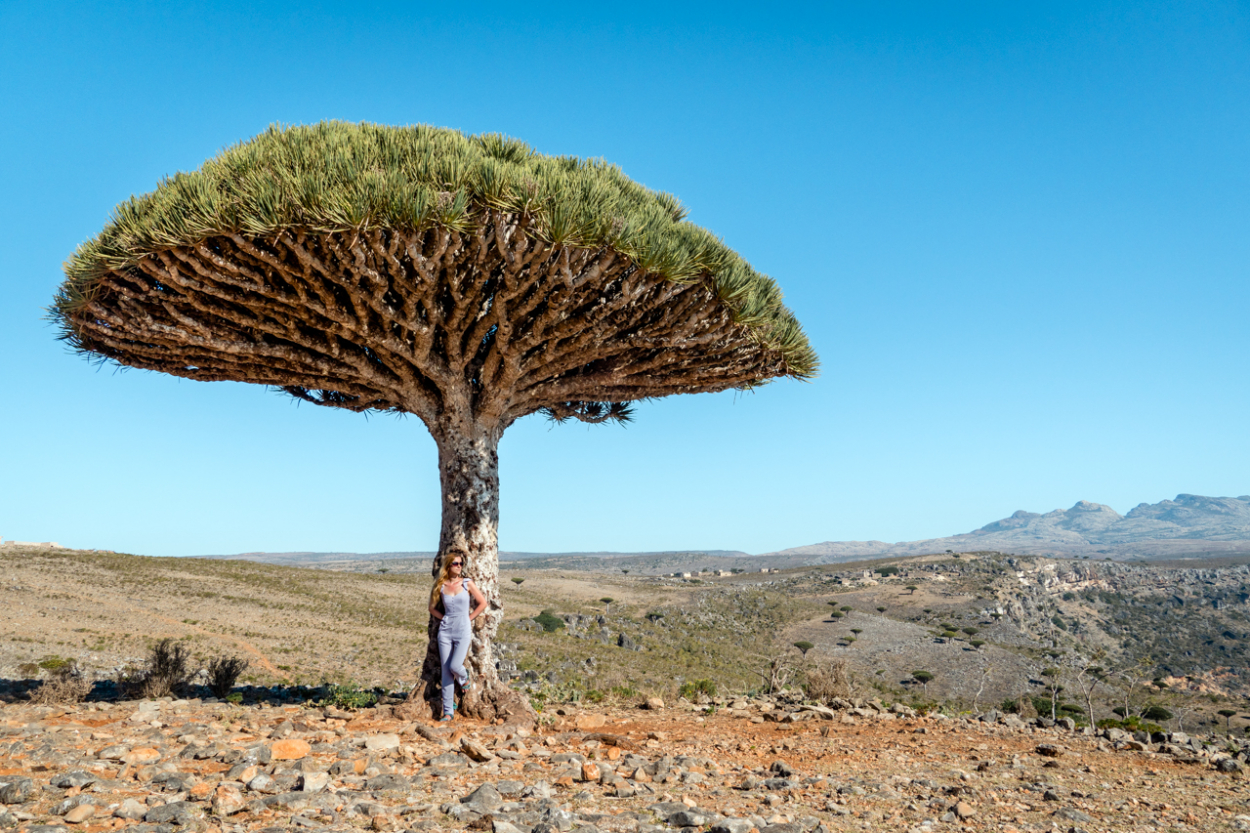
How Much Are Locals Benefiting from You Traveling to Socotra?
Before the Yemeni war, there were only a few local Socotri companies and guides that could arrange your trip and recommendations were spreading through word of mouth.
These days, in the era of the internet, blogs and Instagram, you can book a trip to Socotra through many agencies that specialize in these so-called ‘hardcore places’ – unsurprisingly, almost none of them are locally based. Slogans of these companies are always the same and somehow promote the places as cool because your parents are afraid of going there: “destinations your mother would rather you stay away from”, “places you should not tell your mother about”, and so on.
To be clear, I don’t think anyone should have any issues with a middleman making money off organizing a tour, especially when they’re doing all the legwork, such as booking your visas, flights, bringing tents, and talking to locals. Personally, I think it’s only fair.
Regardless of the “agency” or person you’re booking your trip with, your trip will be facilitated by the locals – there’s no way around it. The big question, however, is how much the locals actually profit from your trip there?
The price for a trip to Socotra isn’t a secret – regardless of whom you’re going with, it’s not cheap. Plus, due to just one weekly flight, which for foreigners is crazy pricy ($800-1300ish return from Cairo or Dubai), it’s always a 7-day tour. Total tour prices range between $3000 and $4500.
As you can see, these prices are different, and the standard does not depend on the price, as there are no luxury hotels on Socotra (there are just 3 basic hotels and they’re not always available anyway), so you’re camping in remote places regardless of where you’re coming from.
I wrote a separate post about how locals are or aren’t always benefiting from your money. Locals charge a rate per person, so regardless of whether you’re a group of 4 or 15, it’s the same price. For a solo traveler, things would be more expensive as you still need a car.
The thing is, foreign guides don’t always know anything about the destination. In fact, quite often they’ve never even been there before. I went on a trip with one of these companies to another destination, only to realize that the “guide” had never been there before.
Frankly, I wasn’t the only one in the group wondering where my money went (since I know how much things cost if you cut out the middle man), and more importantly, what was the point of it.
What bugs me, though, is when a company advertises conservation efforts, but then they bring their friends over, making it 4 foreign “guides” coming on a trip on top of the local team. This did not provide anything extra for the guests that locals wouldn’t have provided.
Not to mention the fact that with 4 “guides” one would expect a very organized trip, but we never knew where we were going, and we often felt rushed. Many photo opportunities were blocked because the organizers decided to take their own photos instead. I always thought that was the right and fair thing to do to give your paying group a priority.
Ironically, it was actually a “good tour”, because there was a big group on the island at the same time who had sneaked alcohol in and were partying and yelling every night to the extent their drivers were so exhausted they could barely drive, as they weren’t able to sleep.
More importantly…
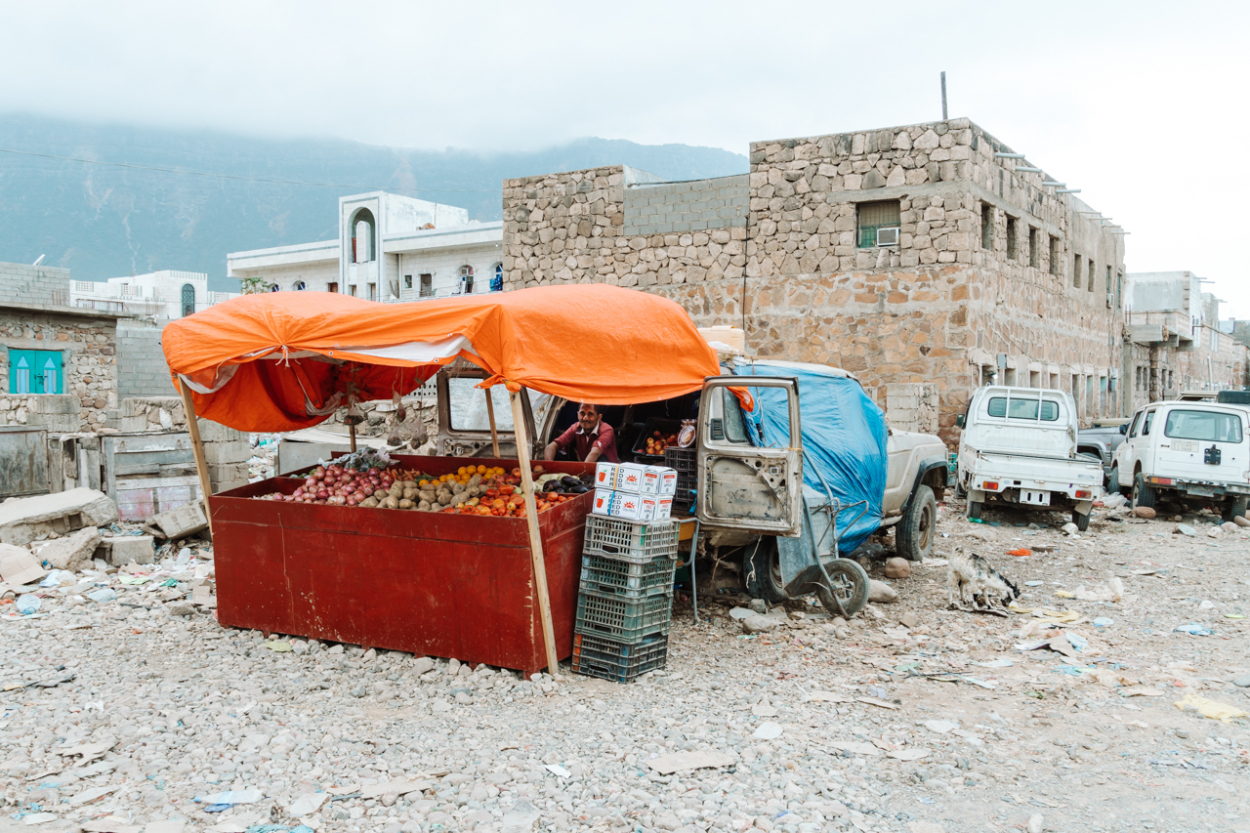
Ecotourism Issue in Socotra
Every single company arranging trips to Socotra is promoting ecotourism. Socotra is being introduced as a place to go remote camping, experience unique nature, sleep under the stars, and so on.
According to the definition, ecotourism is a form of tourism involving visiting fragile, pristine, and relatively undisturbed natural areas. It conserves the environment, sustains the well-being of the local people, and involves interpretation and education. Education is meant to be inclusive of both staff and guests.
Principles of ecotourism include:
- Minimize physical, social, behavioral, and psychological impacts.
- Build environmental and cultural awareness and respect.
- Provide positive experiences for both visitors and hosts.
- Provide direct financial benefits for conservation.
- Generate financial benefits for both local people and private industry.
- Deliver memorable interpretative experiences to visitors that help raise sensitivity to host countries’ political, environmental, and social climates.
- Design, construct, and operate low-impact facilities.
- Recognize the rights and spiritual beliefs of the Indigenous People in your community and work in partnership with them to create empowerment.
Quite frankly, this is definitely not what’s happening with tourism in Socotra in most cases.
*
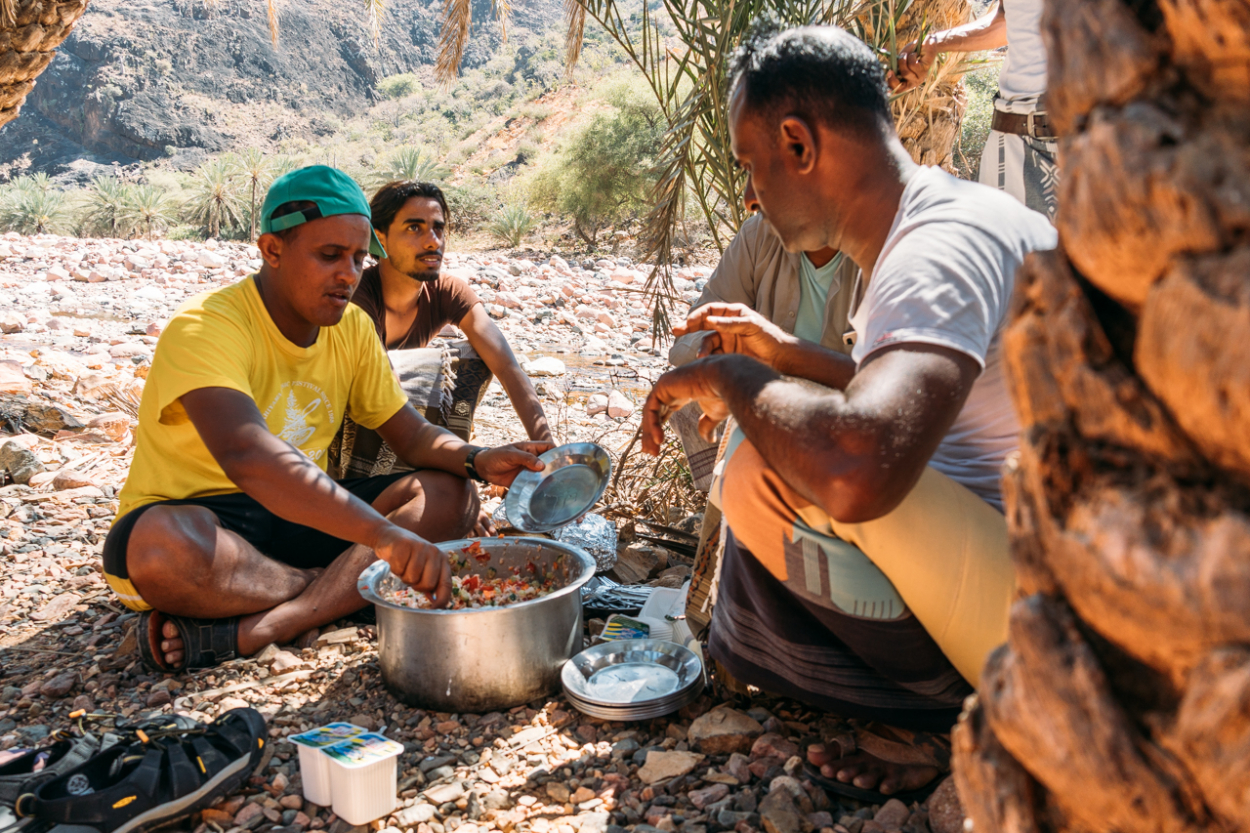
Let’s start with minimizing social impacts and cultural respect, for example, Socotra is still a part of Yemen, which means it’s a very Muslim country. Women are rarely seen and if they do come out, they’re wearing a full-on burqa and niqab. Yet, when tourists arrive, no one is covering up.
We were asked to cover our legs when visiting small towns, but anywhere else a bikini and shorts were a way to go because “there’s no one around”. I packed a bunch of long dresses, shawls, and covered swimwear, and never got to use most of it because everyone was running around in shorts and bikinis.
While it’s true that in most spots it was just our group and possibly another group of tourists, we did occasionally see women passing by, our drivers and cooks (about 8 of them) were local too and we always ran into local kids. I cannot claim and say that anyone was offended as I speak no Socotri and the guides claimed they’re “used to tourists”.
I can only say that based on my deep conversations in numerous Muslim countries, not everyone is happy about it. Especially when a tourist is walking in a crop top through Hadibo, a busy main town of Socotra.
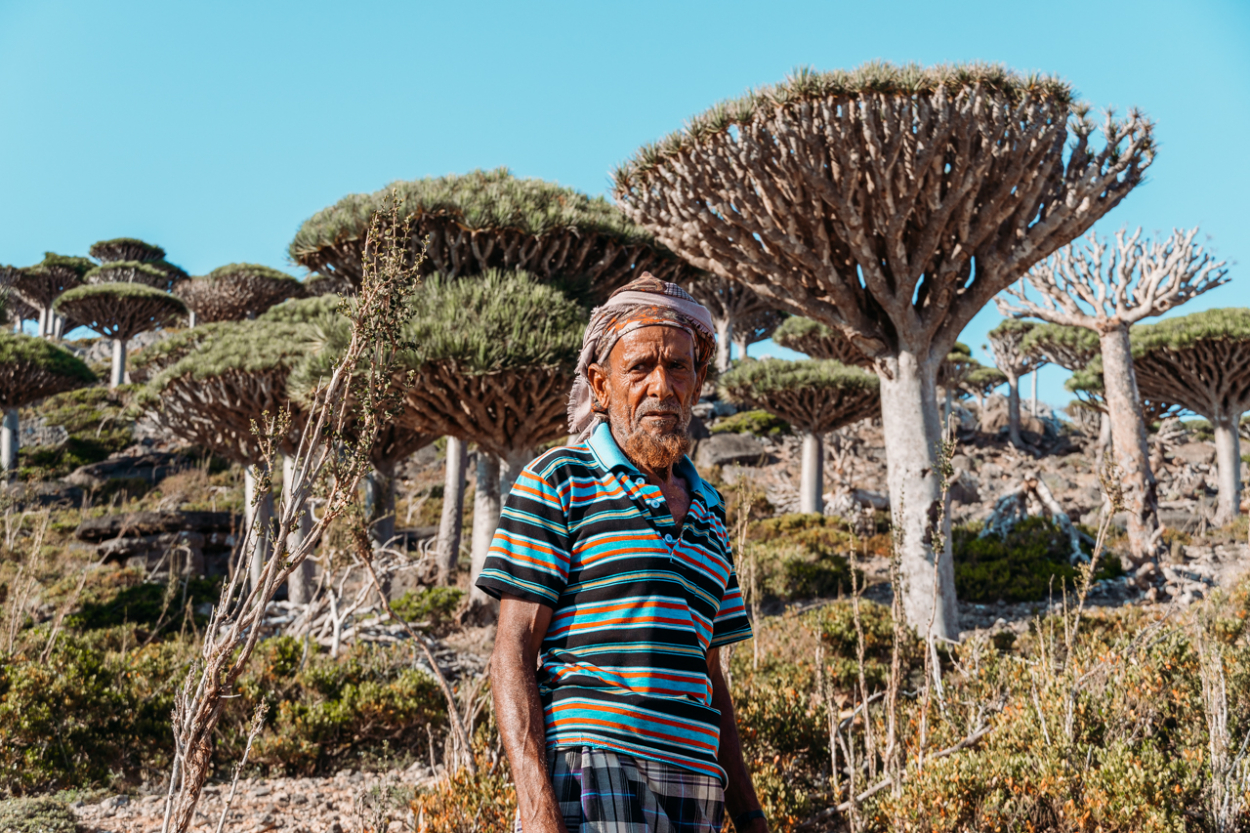
Not to mention respecting local customs and wishes. Socotra is a place where you can camp wherever you want. In Diksam Plateau we camped in designated spots, not to disturb the villagers as advised by our local guide.
However, I was told that even a year before one of the foreign organizers decided to set camp next to Dragon Blood Trees and when locals objected, he decided to bribe them to let the group stay.
There’s a thorough luggage check upon entry and exit from Socotra (although it’s just enforced on women’s carry-on bags on the way out) and you could see many bottles of alcohol being confiscated.
But, not all bottles were confiscated since one of the groups had crazy drunken parties, screaming and jumping off tables every night next to other camps who wanted to sleep, not to mention very displeased local guides.
This doesn’t surprise me, considering the fact that one of the companies is advertising Socotra trips as: “Beaches, hikes, lagoons, camping, cold showers, dragon blood trees, smuggled booze, and lots of crazy stories.”
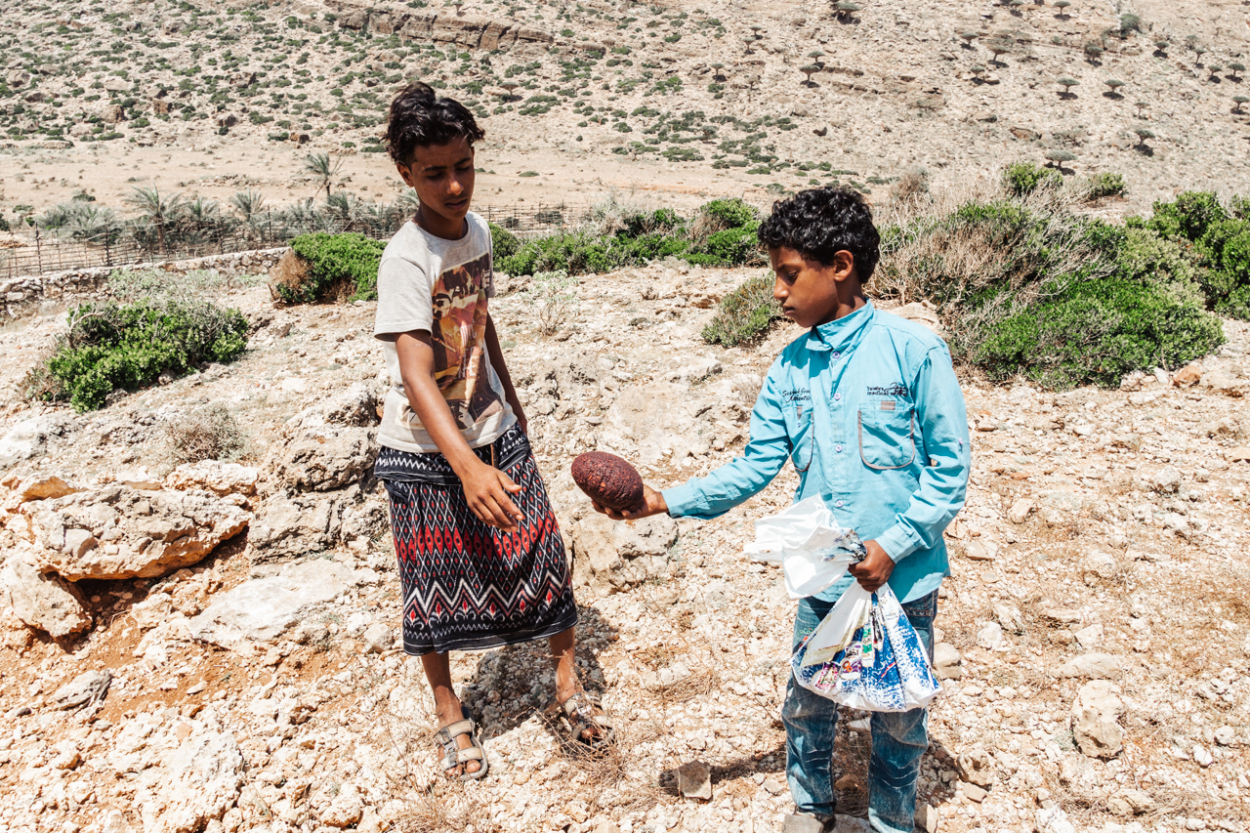
Dragon Blood Trees of Socotra
I’ve yet to see any company making any efforts regarding conservation. I’m highly aware that because of the situation in Yemen (for those unaware Yemeni Civil War is an ongoing conflict that began in 2015 between two factions; while Socotra wasn’t that much affected by it apart from Saudis blocking the access for a while, the island is still ruled by Yemen) doing anything at the moment is problematic, but tourists could help a bit.
Most dragon blood trees, which Socotra is mostly famous for, are very old and unfortunately, there are no new trees growing anywhere apart from a small nursery. Why? Because of hungry goats and wild typhoons.
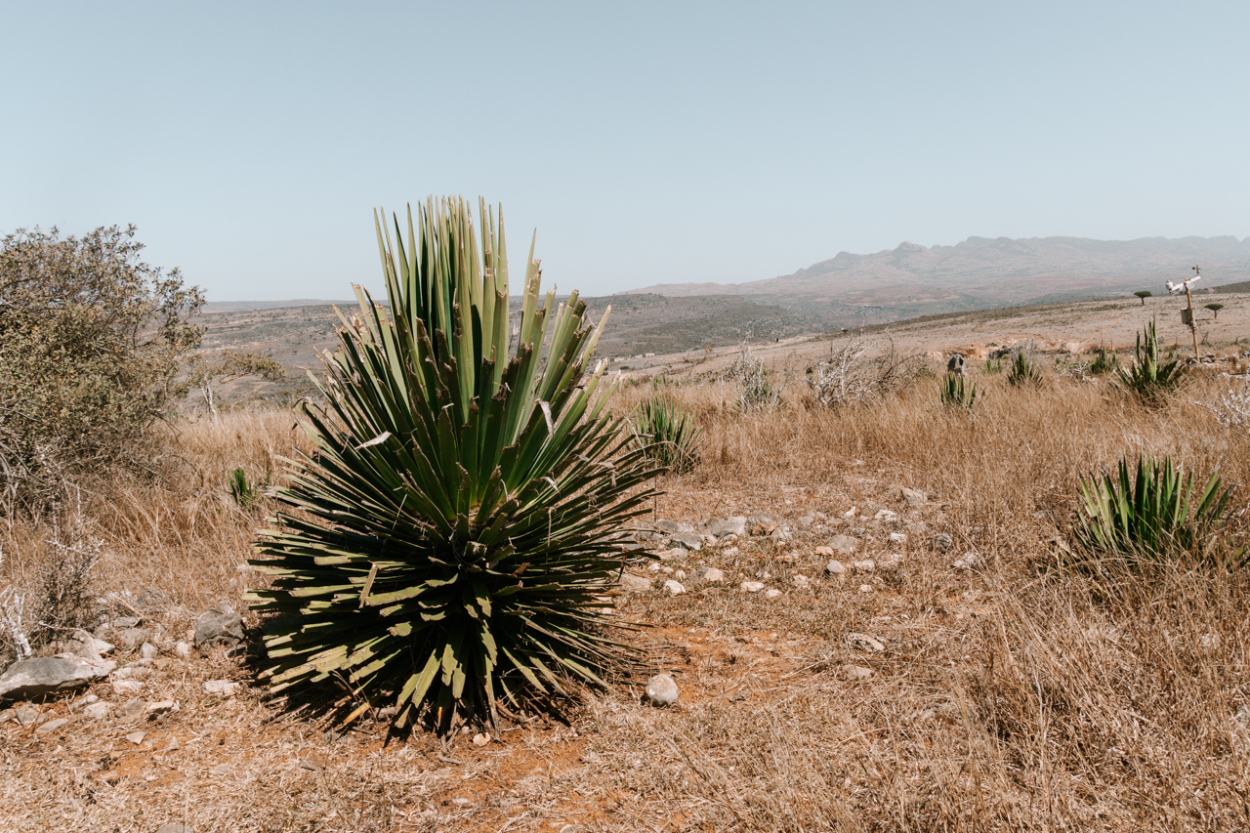
While we cannot do anything about the latter, the goat issue could be helped. Goats are very cute, but Socotra has way too many of them (goats were brought there by humans; they’re not endemic to Socotra) which are literally everywhere, destroying the natural flora and eating baby dragon blood trees.
I felt the same way as some National Geographic journalists – it was quite sad to see. When I came back home and started reading up about it, many botanist enthusiasts interested in endemic species were quite saddened by what they saw.
People would ask: why don’t locals do something about it? To put it simply, life in Socotra (or mainland Yemen) isn’t easy. It’s understandable that locals don’t have the resources or financial help to rescue the trees.
However, we tourists do. Another remote island of South Georgia had a similar issue, but with rats. The whole project of removing the rats started with visitors’ ideas and donations and was successfully finished in 2018. It’s all possible with a little will, especially considering that people are can afford to pay a high price for a trip to Socotra can spare some money.
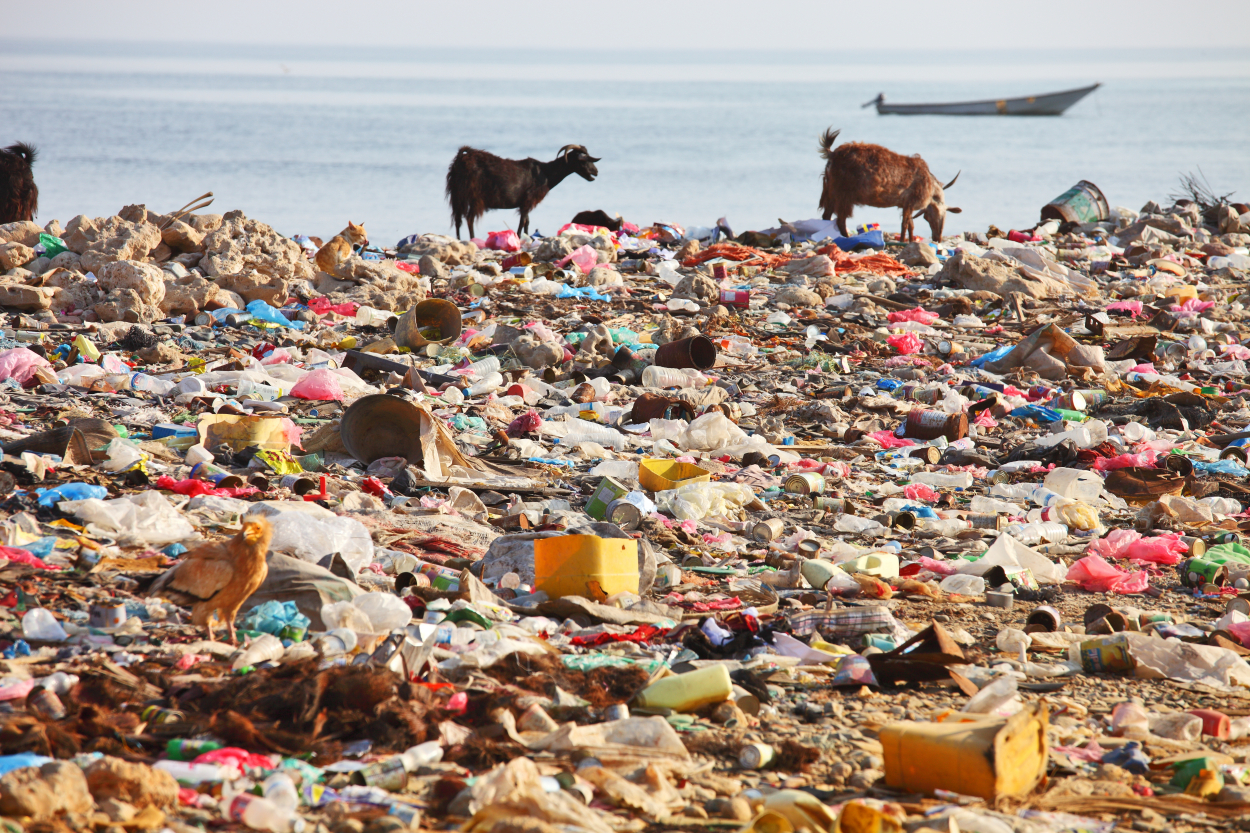
The Trash Problem
It would be unrealistic for me to present Socotra as a natural paradise without mentioning that it’s also so full of trash that it can make many sad. There is literally not a square meter on land that doesn’t have goat feces (Socotra does have a goat problem), or trash, or both.
When I addressed the issue of trash on social media many people weren’t aware of the presence of trash on beaches. Unsurprisingly, most people who travel almost exclusively to resorts or hotel beaches won’t see it, as trash is being cleaned every day by the staff.
Socotra isn’t alone in the trash problem. All over the world, including popular islands of Bali, Easter Island, Boracay (I actually received death threats for addressing this issue there, but the government finally closed the island a few years later) – all have this problem, Tulum, Maldives even has a dedicated trash islands that finally got more attention thanks to my friend Allison.
The truth is, many people don’t want to see it. When I asked some fellow Polish tourists leaving Socotra how they felt about it, their response was ‘what trash?’. Another person told me that “people travel to have fun, not to care about the problems locals should fix, so they just ignore them when they see them.”
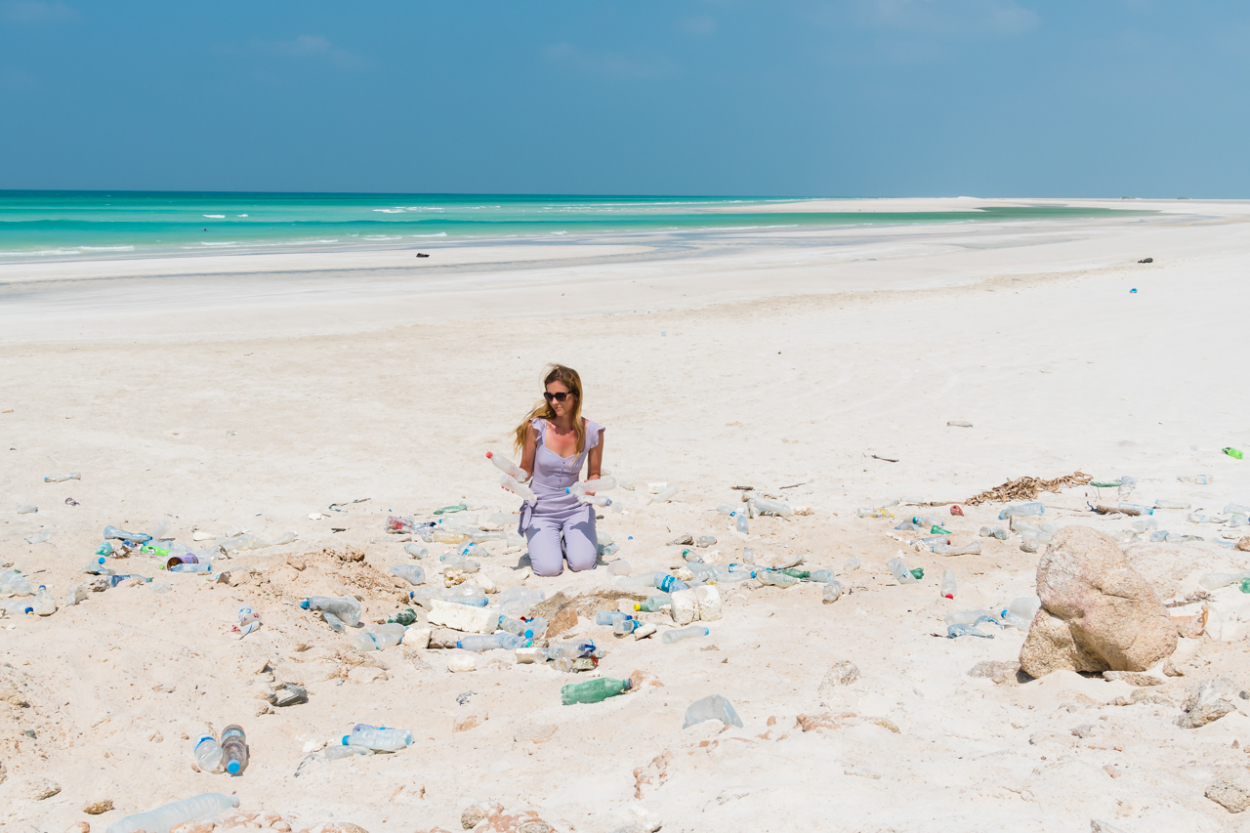
I sincerely hope not all tourists think that. In many places, including Socotra, Syria (where a similar trash problem is an issue), or anywhere in Africa, locals aren’t in a position to do much on a bigger scale, or even a small scale. But we, as those more privileged, do. We all share the same planet together and should take care of it together.
While our group did a beach cleanup that resulted in a full truck of waste within an hour, it changed nothing in the long run. It just made everyone feel a bit better and we got local boys to come help as well, but in a week, things will look the same. If every group of tourists did it could be the start of a bigger initiative (which was thankfully started by another tour company!)
Plastic is a problem everywhere; I’m not discovering something new with what I just told you. But, what baffled me was the amount of trash we, the visitors, produced ourselves. Every meal resulted in a giant bag of trash, if not two of them.
When you ask a Socotri what they eat every day, the answer will be simple: rice, local bread, fish and occasionally a goat or cow. They’re used to it. For foreigners, they make spaghetti, bring vegetables, instant noodles, spicy sauce, and small water bottles.
As you can imagine, everything has to be imported to Socotra and with imported things, single-use plastic is coming as well. Villages have no form of trash collection, so as a result, the trash can get stuck there.
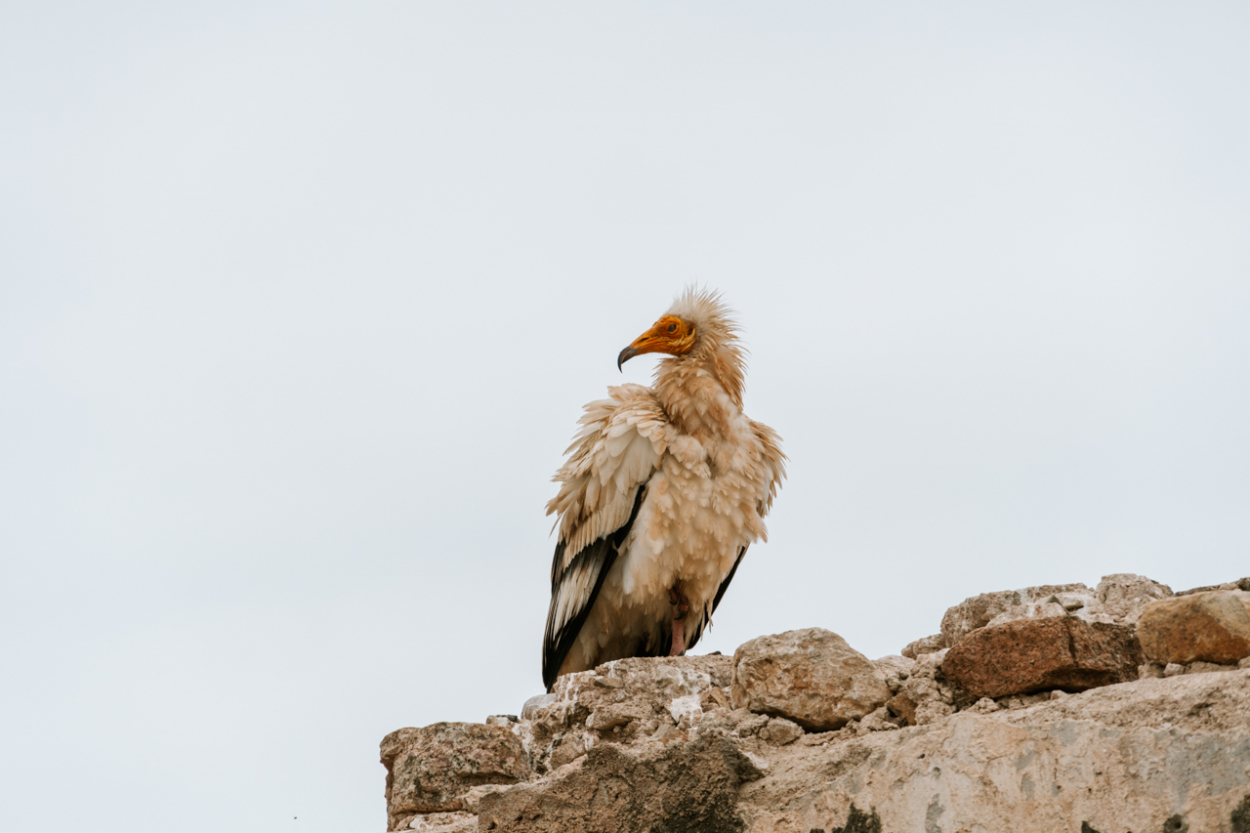
The Impact of Tourists on Socotra
If you look at TripAdvisor you can see that people loved the fact that there weren’t many other tourists on the island. Even back in 2019 there were about 15-30 foreigners on the island every week.
When I went – in March 2020, it was a completely different story. Our flight brought over 100-120 tourists, the flight before also had a high number and film crews, and the ones after (before the cancellations due to coronavirus) were sold out as well.
Socotra got a break during covid, as it wasn’t reachable, but now the interest and number of tours available tripled.
One could think that even 200 people per week on the island would be great for the local economy, especially if you compare it to another natural spot – Galapagos, which welcomes over 2500 tourists per week.
However, Socotra is just one island, and all tourists go to the same spots, just on different dates. Once you’ve been to Socotra you realize that everyone goes to the same exact spots. If the number of tourists keeps increasing, these spots won’t be the same anymore.
In places where tourists are a known source of income, such as Cuba, you can see children begging for candies, pens and basically anything. It’s a difficult subject of whether you should bring donations or not, as it gets children used to it.
But, giving away a ton of candies and chocolates to locals and kids isn’t something tourists should be doing. In Socotra, locals have no access to dental care why would we contribute to the damage of their teeth with all that sugar?
There are plenty of villages around Africa where at the first sight of a tourist, they yell for “bonbons” or “give me a pen” and it’s not a good thing for anyone. You could rather buy some dragon blood from the locals.
*
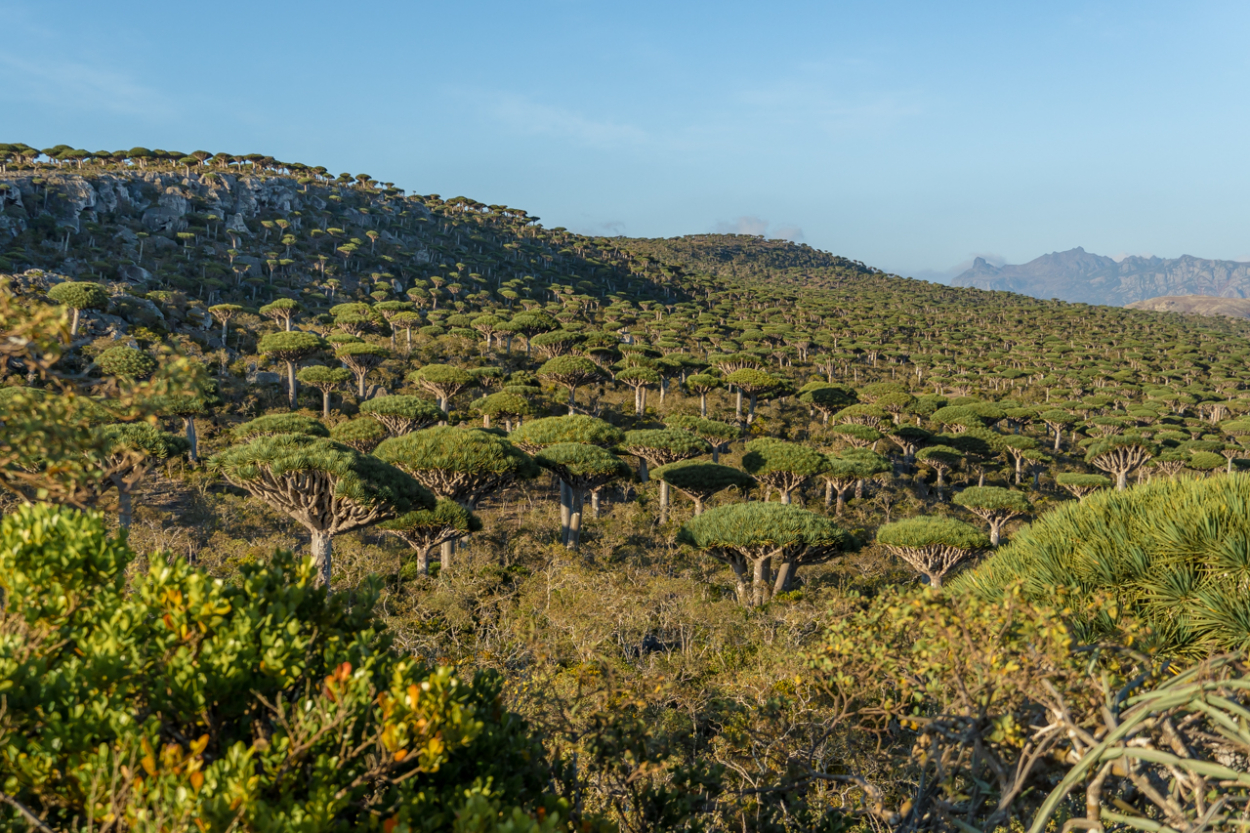
If you read anything about Socotra you must have heard of Abdullah the Caveman from Detwah Lagoon. Abdullah is a guy who was raised in a cave, his mother was born in. But, based on some blogs, you could think he’s an actual caveman. Which is not true.
He has a smartphone, speaks great English and these days lives in a nearby town with his wife and 7 kids. He comes to the cave to stay during rainy seasons, but mostly when he’s requested by the tourists.
A boulder next to the cave says ‘welcome’ on it, it’s not as remote as it may be presented. When we reached his cave another group of tourists was just leaving.
We got served some mussels Abdullah just caught and cooked for us and then he requested to go fishing with him. It was supposed to be the best experience in Socotra – but frankly, it was the only one I decided to leave early and walk back to camp on my own.
It wasn’t because of Abdullah. He was a very nice man who simply realized he could be a tourist attraction. He showed us how he fishes with his bare hands to feed himself and his family in the lagoon. Whether it’s mussels, crab, fish, octopus he’ll catch it and eat it. There’s nothing wrong with that.
He pulled a giant octopus from the water to show us and explained that they were friends. No one else dared to touch the little guy, but then it came to the pufferfish…
Most of the people in my group have never seen pufferfish, myself included. They’re cute and when they inflate they look even more adorable. Guess what became the biggest tourist attraction over a few days we stayed at Detwah Lagoon? Pulling these poor pufferfish out of the water to make them inflate and take photos.
Locals might do it for tourists, but they don’t know any better. I’m not a sealife specialist, but even I knew this was horrible and it harms the pufferfish. Similar to pulling starfish out of the water, they can die because of it.
Ironically, all our foreign guides were prime persuaders of this behavior, along with someone who runs a local travel agency back home. I left when I noticed how someone in my group was kicking the pufferfish because ‘it wasn’t coming out to the surface for him’.
Our group wasn’t the only one that did it – every other group in Socotra was showing off their holding pufferfish photos claiming it was ‘the best experience ever’. Can you imagine what will happen when even more tourists come to the island?
EDIT February 2024: As Socotra is becoming more and more popular since my visit with almost every travel agency offering tours, I found out that currently even the crabs are tied down in the water so they are ready for tourists. Honestly, if you think Seaworld was bad, this is next-level bad.
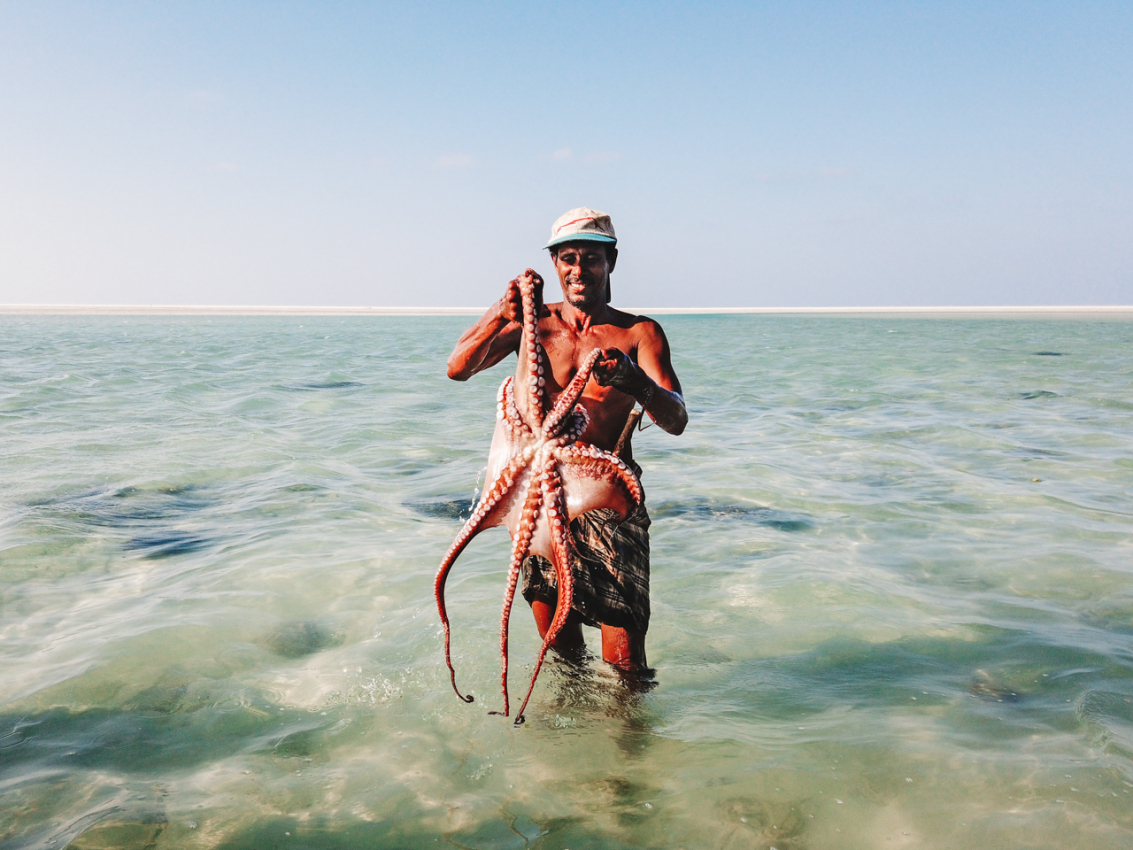
*
I’m not telling you not to go to Socotra. I highly recommend you consider these issues, especially if you care for the environment.
While no one is perfect and even the biggest sustainability supporters havemade mistakes in the past, but if we all care for the future of Socotra we need to consider making things right.
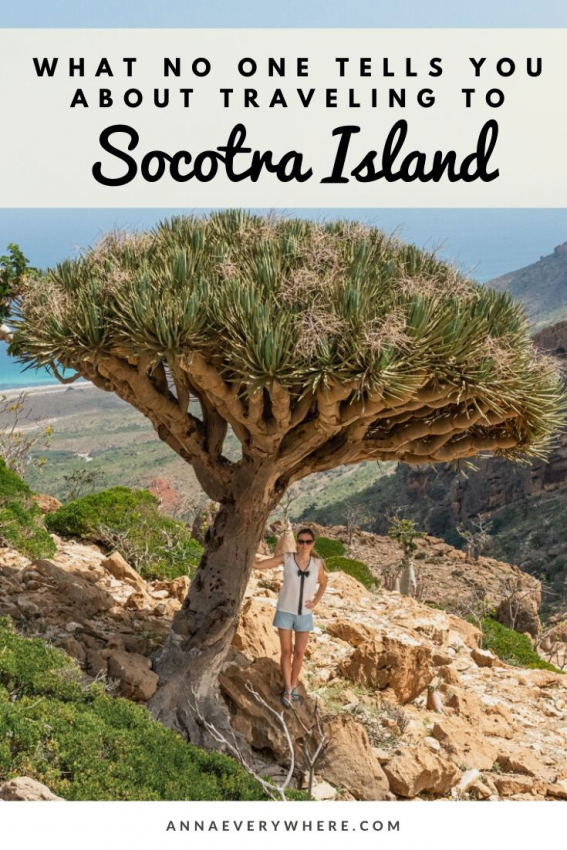

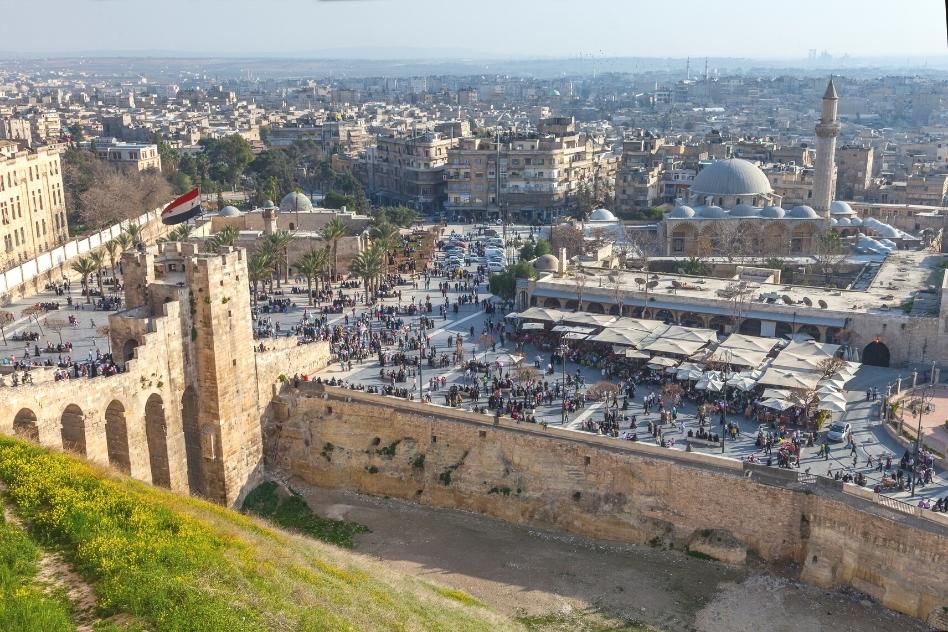

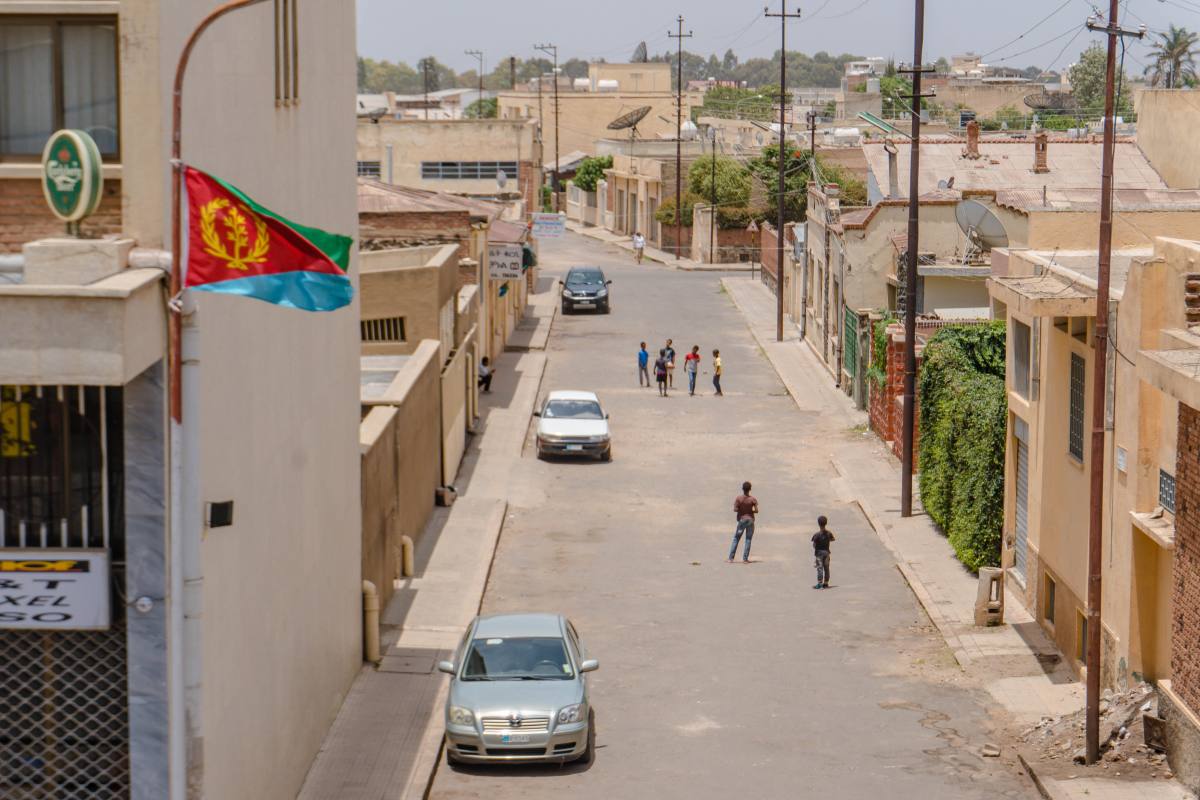
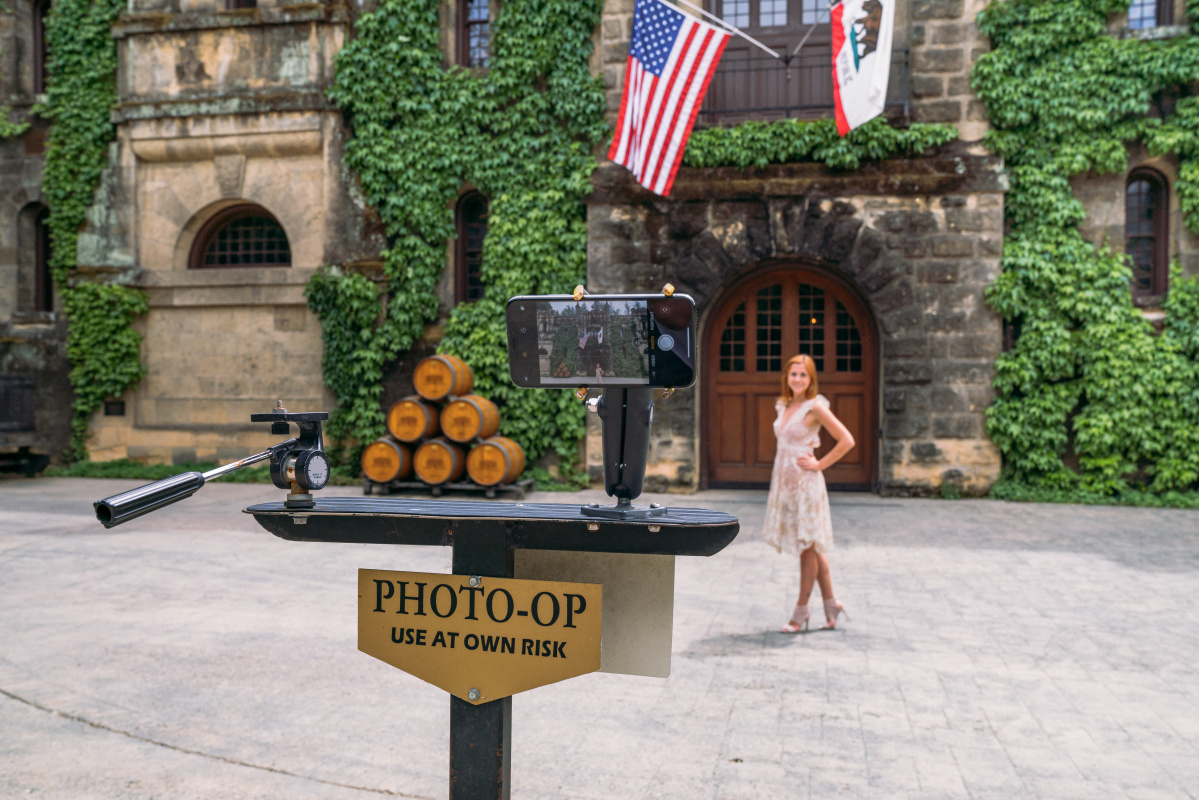

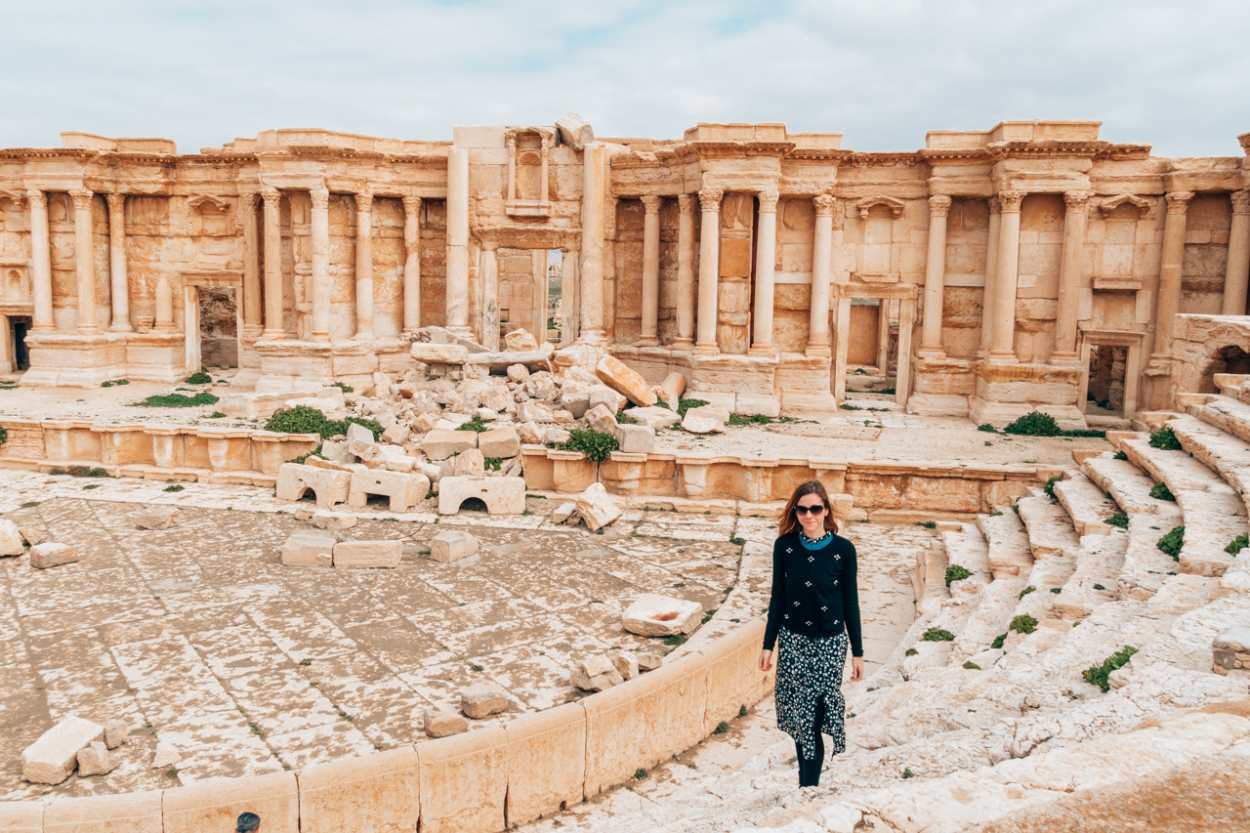
Appreciate this very informative post which covers most of what’s not being told about visiting Socotra.
As a Yemeni I would like to add that visas to Socotra aren’t being granted by the Yemeni government no matter what tourism companies tell you. To put it in plain terms Socotra is unlawfully being occupied by UAE who runs all the flights in and out of the island without permission from the Yemeni government.
Visiting Socotra might be “cool” but anyone doing it is helping UAE cover their crimes against the people of Yemen who are suffering until today.
Over 5000 children killed and at least 400,000 Yemeni children under 5 could die of starvation this year. Over 233,000 people died because of the war on Yemen.
Socotra welcomes everyone but not under these circumstances, please stop helping those who are killing us and occupying our land.
@Rashed, thank you for sharing this info
@Rashed, i also want to thank you for sharing this info, as well as Anna. It’s so important to have this information widely available. I recently learned abt Socotra after my interest was sparked by a visit to a Yemeni cafe here in the US and Socotra was immediately a place I wanted to prioritize visiting. I like to be as ethical & sustainable as I can, however, and it is clear that this is a case where I would be unable to visit in good conscience. I will do what I can to spread this information. Thank you again, and I hope the situation with Socotra improves, and that the ceasefire talks go well <3
Spot on on the trash problems of islands. I live in Malaysia and we have a similar issue in a top diving destination. Most tourists go straight to private islands and don’t see the trash. I stayed on the mainland and the living conditions was a different reality. Thank you for this post.
I was going to write a promotional post about Socotra, but after reading your post, decided not to do it.
Thank you for this informative post.
Thank you so much for sharing your experience. It was so informative. I’ve always wanted to travel to the Island of Socotra. I truly care about its natural habitat.
I’ve known about the dragon blood trees and the goats for quite some time.
The photos of the garbage saddened me. I’ve been told that tourists aren’t wanted by Yemeni people.
Hi Anna
I used to visit Socotra quite frequently, but haven’t been there for more than 10 years. I expected this would happen once the Emiratis took the island. It is so sad
THANK YOU so much for your refreshing honesty! These are definitely things everyone should consider, and OMG poor pufferfish 🙈 I will also do my best to minimize my trash when I go, and I’ll try to raise further awareness as well.
We are flying to Socotra in 4 days. I am so happy that I found your post, I will be much more prepared to say no to certain things – hoping that my group shares similar values.
The problems you raised are similar to many places we travelled before, such as remote areas in Africa that now totally depend on the money they make from tourists. The sustainable travel can be achieved, but this means cutting profits for many, and I don’t tend to see many companies or individuals willing to scarify their earnings in order to protect the land or culture.
Thank you for your honesty and responsible approach.
@Kasia Pearce,
Any thoughts you could share after going? I’m so torn
Thank you for your informations. I am going to visit the island in a few days with a small group of 9 persons fron Greece. You say everything that I would like to know and you are very helpful. I want to hope that our group will be friendly to the people and the enviroment. Thank you
Zetta
@Zetta Kousouri, Hello zetta. I am greek too and I am thinking of travelling to sokotra but the issues mentioned above have discouraged me a bit. I would like to have your view on the subject after your trip there and may be get some more recent info. Please contact me! [email protected]
@Katerina Anagnostopoulou, did you have an answer? I want to know as well, because I share your feeling. Feel free to reach out to me: [email protected]
Thanks for this. It is very true indeed, and little is done on Socotra to change this, unfortunately. The more people know about this, the better, and the better – one would hope – are the chances for a change in mentality – both, among the tourists and the Socotri people themselves.
Perhaps just one other point: The tourists come during the winter months. During the summer months live is much harder for the Socotri people and there is no income from tourism. This just makes it more likely that during the tourism season these beautiful places will experience all sorts of environmental and other kinds of stress.
After reading your post, I have to conclude A LOT of the tourists coming to Socotra are idiots.
Frankly, it is a bit strange to paint a picture where innocent rich first worlders are seduced by misguided organizers to doing harmful and disgusting things…c’mon as if visitors themselves shouldn’t know better. So in my view, the biggest problem at hand is the attitude and values of those visitors.
@R, completely agree. The ignorance of the person Anna encountered who said “people travel for fun and those are problems for the locals to solve” just…wow. Highlights that individualism and capitalism have reached toxic levels especially where the travel sector is concerned, due to the lack of empathy they breed. Absolutely disgusting. Considering the social and environmental impact that travel has, one should need a license to do so.
Thank you for this! I agree
Hi Anna,thank you for taking the time to write such a detailed and informative article.Ever since I can remember discovering about Socotra I have dreamed about visiting one day.I have begun reaching out to various companies to investigate the possibilities and also begun to reflect on how it all works out on such a relatively small and desirable island.Sadly most of what you wrote (some of which I priorly suspected )is less than palatable and as such I will probably make the decision not to visit Socotra.
It seems that such a special place is being made less special by organisations not putting the island and the islanders front and centre of considerations. A great shame.
Thanks for your honesty and such an informative post. I’ve been dreaming to visit Socotra for years but have some contradictions about doing so.
Do you know of any local guide/socotri agency which organize trips? If I ever go to Socotra I’d like the money spent goes to the Socotri community.
Thanks
I saw Socotra from a distance, that was enough. Who would want to visit such a desolate moslem joint?
Thanks for this, it’s a really well thought out, informative piece. I’m fascinated with this place and really want to go, but coming from a city that’s suffering from too many tourists, it’s of utmost importance to me that my holidays aren’t having a negative impact on the communities I’m visiting.
Thanks again, I hope I can visit and avoid making these mistakes.
Thanks so much for the frankness and reality check. If only a fraction of tourists had a fraction of your awareness.
Hello
Your testimony is really interesting. Do you have a name of a real local guide without any middleman?
Thanks
Is there a way we can hire local guides (who are actually locals and what we pay them will reach their families and communities and not middle men), or is it impossible from out of country?
Yes it is! You can contact local Socotri companies directly.
This was a very insightful and helpful summary – thank you!
Couldn’t help noticing a sort of condescending tone in your overall article on Socotra. You seemed bothered by the presence of other tourists, yet you were a tourist yourself (why did you feel the need to write that you saw other tourists leaving Abdulah’s cave?). You seem bothered by the possibility of other tourists traveling to Socotra and possibly spoiling its natural beauty, yet you were one of those people who actually bought a ticket, packed the bags and went there for a week. If you worry so much about a place and wish to keep it tourist-free how about… em… NOT WRITING about it? Not 1, but 2 freaking articles. Yeah, you seem to care about the trash and the ecosystem there and brag about your trash picking but then you whine about tourists coming there when you are just a tourist yourself and write a very public blog about “hidden gems”. This seems hypocritical.
This was a very insightful and helpful– thank you!
We are a small group of ethically concerned tourists travelling to Socotra in a few days. We did our best to scout for a local Socotri company, I truly hope we made the right choice as they were one of the best reviewed local companies we found. However they did organise the flights and visas.
This was an important read and while I consider myself quite an aware and ethically conscious traveller, some of the things you wrote about punched me in the gut (eg the pufferfish..). I will not stay silent if I witness anything like this and will be sure to demand nature, animals and communities to be treated with the respect they deserve. I feel a bit torn now about going but naively hopeful that in the long run the tourism sector in Socotra can learn and transform to the benefit of the island and its communities and its fragile ecosystem.
Hi there, I’m so so glad to have read your article about Socotra Island. Just to know about the pain and suffering. (Actually all over the world) I would like to buy Dragons blood from the local people and was wondering if you can connect me with someone reliable to buy. It will be sample of 3 kg and ongoing trade.
Sincerely Lita
South Africa
Thanks for this post.
I’ve been living in Oman for 7 years and had considered travelling to Socotra a few years back, just to see the amazing endemic fauna.
The idea that this is being trashed by Dubai influencers is one of the most depressing things I’ve heard this year (and that’s saying a lot, given the state of the planet and geopolitics in the ME ATM).
I wish there was school of tourists (not of tourism) , where tourists would learn how to behave “eco-tourist”.
Your description is so important that if I was UN I could design you an ambassador of Tourism, as concern eco-tourism … You are really a lover of nature and people… and you are honest, even if you are avoiding some realities around the hidden making of the island … However, politic realities should not refrain individuals to visit areas.
I am designing a website for a New Tour agency for visiting Socotra, own by a Native of Qalansiyah village (Socotra Island), and your description will help me, not only to be honest but to address the issues of Eco-Tourism and others … Tks much!
I can only wish you the best in your adventures …
D.
Thank you for the great insights. I am Going to Socotra next month. I had my booking sorted with Hellosocotra. I did a lot of research only to find several websites promoting tour packages to the island owned by foreigners, but I’m not quite sure why. In the company I booked with, I had the pleasure of speaking with the owner over the phone. Looking forward to it.
Travel to Socotra Yemen is high risk now. Read the US state department advisory fully. The tour companies offer a visa but it is not legit. High risk due to terrorism, kidnap risk, land mines, and more. Yikes! There is no US consolate in Yemen to advocate for US citizens. https://travel.state.gov/content/travel/en/international-travel/International-Travel-Country-Information-Pages/Yemen.html?gad_source=1&gad_campaignid=44031958015&gbraid=0AAAAAqbBk5vJUKauqC4_nfvd6Ydw4iiMa&gclid=Cj0KCQiA5uDIBhDAARIsAOxj0CEAaXRXzWvPrSKpKSRRIzxUOq4AS29jDCFNtuOAK8F1eRfmkCuI_2kaAlsKEALw_wcB
Let me start by telling you that there are no consulates in most Caribbean countries, but Americans travel there frequently 😉
Then I’ll add that many countries issued a travel warning about traveling to the US…
There are no land mines or kidnapping risks in Socotra, never been in fact. Socotra has never been high risk.